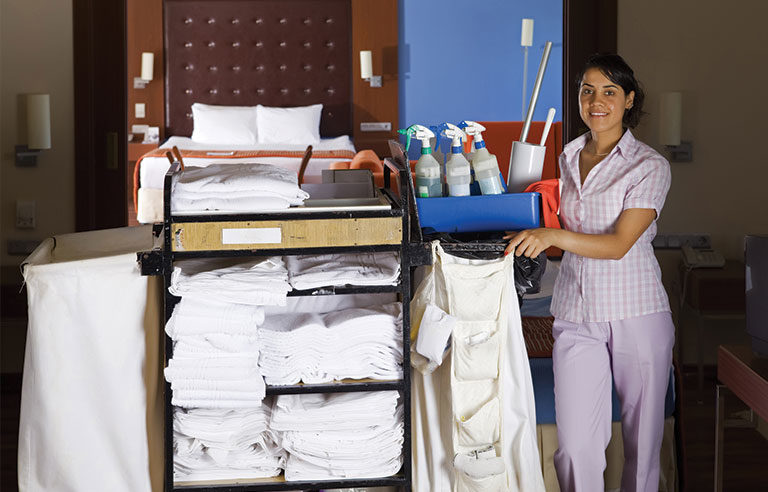California adopts standard to protect hotel housekeepers from MSDs

Oakland, CA — California’s Office of Administrative Law on March 9 approved a workplace health and safety standard for the state’s hospitality workers, completing a multiyear push by hospitality workers union UNITE HERE.
The standard – which is the first ergonomics standard in the nation written specifically to protect hotel housekeepers – will be added to Title 8 of the California Code of Regulations as Section 3345, Hotel Housekeeping Musculoskeletal Injury Prevention, and will be enforced by the California Division of Occupational Safety and Health, also known as Cal/OSHA.
The regulation will require the state’s hospitality employers to create, execute and maintain a Musculoskeletal Injury Prevention Program, which must include:
- Procedures to identify and evaluate housekeeping hazards through worksite evaluations that include housekeeper input
- Procedures to investigate musculoskeletal injuries to housekeepers
- Methods to correct identified hazards
- Training employees and supervisors on safe practices and controls, and a process for early reporting of injuries to the employer
“Hotel housekeepers have higher rates of acute and cumulative injuries compared to workers in other industries, and data shows those injuries have steadily increased,” Cal/OSHA Chief Juliann Sum said in a March 13 press release. “This regulation requires employers to identify, evaluate and correct housekeeping-related hazards with the involvement of housekeepers and their union representative.”
The California Occupational Safety and Health Standards Board on Jan. 18 unanimously approved the standard, sending it to the state’s OAL for final approval. The standard is scheduled to go into effect on July 1.
Post a comment to this article
Safety+Health welcomes comments that promote respectful dialogue. Please stay on topic. Comments that contain personal attacks, profanity or abusive language – or those aggressively promoting products or services – will be removed. We reserve the right to determine which comments violate our comment policy. (Anonymous comments are welcome; merely skip the “name” field in the comment box. An email address is required but will not be included with your comment.)

